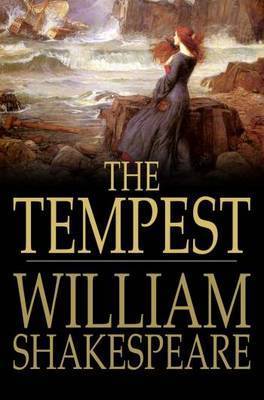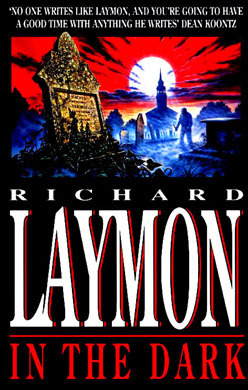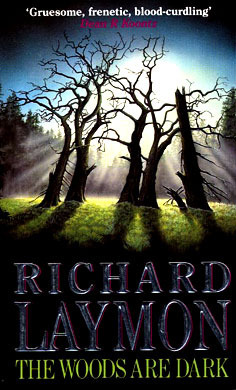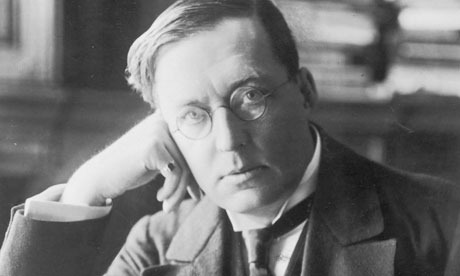In Defense of Richard Laymon
I could be wrong—in fact, the odds are for it—but I don’t believe I’ve written a blog post about Richard Laymon yet.
And that’s a crying shame. The guy was one of the best writers in horror history—yep, I said it—and he has been immeasurably influential in our genre. More, he’s been a huge influence on me and my writing. More than any other author whose work I repeatedly pick up for enjoyment and learning—yep, I said that too—Laymon eschews the pretty-sounding phrase and the flowery word in the hope that his reader will always remain firmly entrenched in the story.
What a concept.
That isn’t to say that a highbrow literary stylist can’t also totally immerse a reader and do so with eight syllable words and metaphors of depthless profundity—he or she can. And sometimes I want that as a reader. I detest the notion that a tale can’t be both literary and absorbing. I love Shakespeare, for instance. No, I’m not kidding. The Bard was a wordsmith of the highest order to be sure, but he was also a gripping teller of tales. So when I’m in the mood to be dazzled by words while I lose myself in a fictional world, I pick up Othello or The Tempest. Really. I do.

My Most Recent Beach Read
But sometimes I just want to hear a really fast-paced story penned by a guy who values pace and POV above all. That’s when I pick up Laymon.
The sad thing is, though, that folks who agree with the notion that high-falutin’ literature can be spellbinding are frequently the same snooty aesthetes who sniff at Laymon’s work the way a billionaire rolls his eyes at the idea of paying taxes: “Some might like that sort of thing, but frankly, it’s beneath me.”
See, I’m for any kind of story if done well. Okay, maybe there are a few exceptions. I have trouble reading about children in danger, and I don’t like rape scenes. But I also understand that Pet Sematary and are masterpieces, and that without the aforementioned elements, they wouldn’t be the same stories, would they?

“Under-rated!” *clap clap clap-clap-clap*
So I keep an open mind as a reader, and that’s why Laymon nearly always grabs me. He stays out of the way of his characters, he isn’t afraid to let them do things that would make a convict blush, and his novels rarely fail to hold me all the way through to the end. Sometimes, as in Island or The Cellar, I find myself gasping at the final line.
What makes me gasp is often the depravity of Laymon’s characters. This is one of the anti-Laymon crowd’s favorite talking points: because men frequently behave like beasts in Laymon’s books, Laymon himself had to be a misogynistic fiend. Because, you know, men never treat women badly in the real world. Nope, we’re all a bunch of sensitive knights errant galloping around trying to one-up each other in our neverending quest to treat the opposite gender kindly. Right.
Or perhaps Laymon understood what evil men are capable of and often wrote about it. Couldn’t be that, could it?
I guess the thing that really bothers me about this criticism is the notion that if Writer A’s characters eat human flesh, then Writer A must secretly harbor that desire, too. Call me crazy, but I’ve always thought that one could critique and even pan an author’s work without suggesting the author himself is a sex-crazed sociopath. But you’d never know it while reading some of the Laymon reviews. Never mind that everyone who ever came into contact with the man speaks endlessly about his kindness, his gentleness, his generosity, and his irreproachable character. Never mind that these are, after all, works of fiction, and not his secret diary.

My Favorite Laymon
Another criticism leveled at Laymon (and if you’re wondering about what critics I’m addressing, I guess it’s a faceless amalgam of some of the negative Goodreads and Amazon reviews I’ve read) is how action-heavy his novels are and how little character development there is. This is a legitimate criticism if your tastes run toward character-driven works. In Laymon stories we don’t often get fifteen-page flashbacks about formative childhood traumas, nor does he spend much time at all talking about how a character got to where he or she is.
But that’s because his stories are concerned with what’s happening now. Laymon stuffs us bodily into the point-of-view character’s flesh and refuses to let us grow complacent. He propels us forward to see what the character sees, to feel what the character feels, and to sense what the character senses. He takes us through the character’s logic, her fears, her rationalizations.
And he does what he does exceedingly well. There’s a scene near the end of Toy Story in which Woody lights a rocket that’s been strapped to Buzz Lightyear‘s back (reading some of the Goodreads reviews, you get the impression many readers envision Richard Laymon as Sid, the vicious miscreant responsible for the aforementioned rocket). When the rocket ignites, Woody is barely able to hang on.
That’s the kind of pace Richard Laymon created. Some don’t like that breakneck speed; some like to stroll along the sidewalk taking in the sights rather than blast down the middle of the street at a delirious speed. But it takes a skillful and talented writer to produce that kind of thrust, and whether you like his stuff or not, Laymon was indeed that writer. And I firmly believe that delivering that kind of pace requires as much expertise as does constructing a great plot or crafting an interesting antagonist.

Pay attention to the rocket, folks. Not the kid.
The problem is, you’re just going too fast to appreciate it.
So read a Laymon book soon. I recently finished Funland and plan to blog about it before year’s end. Or maybe it’ll be The Woods Are Dark, my very favorite Laymon novel.
And if you happen to check out either of my first two novels (The Sorrows or House of Skin), I sincerely hope you’ll sense a little of his influence in those stories. I’m as proud to be influenced by Laymon as I am to be influenced by M.R. James. Sure, James wrote in a completely different style than Laymon did, but the two men had something in common.
They were both studs. And awesome writers.

M.R. James: Rock Star






